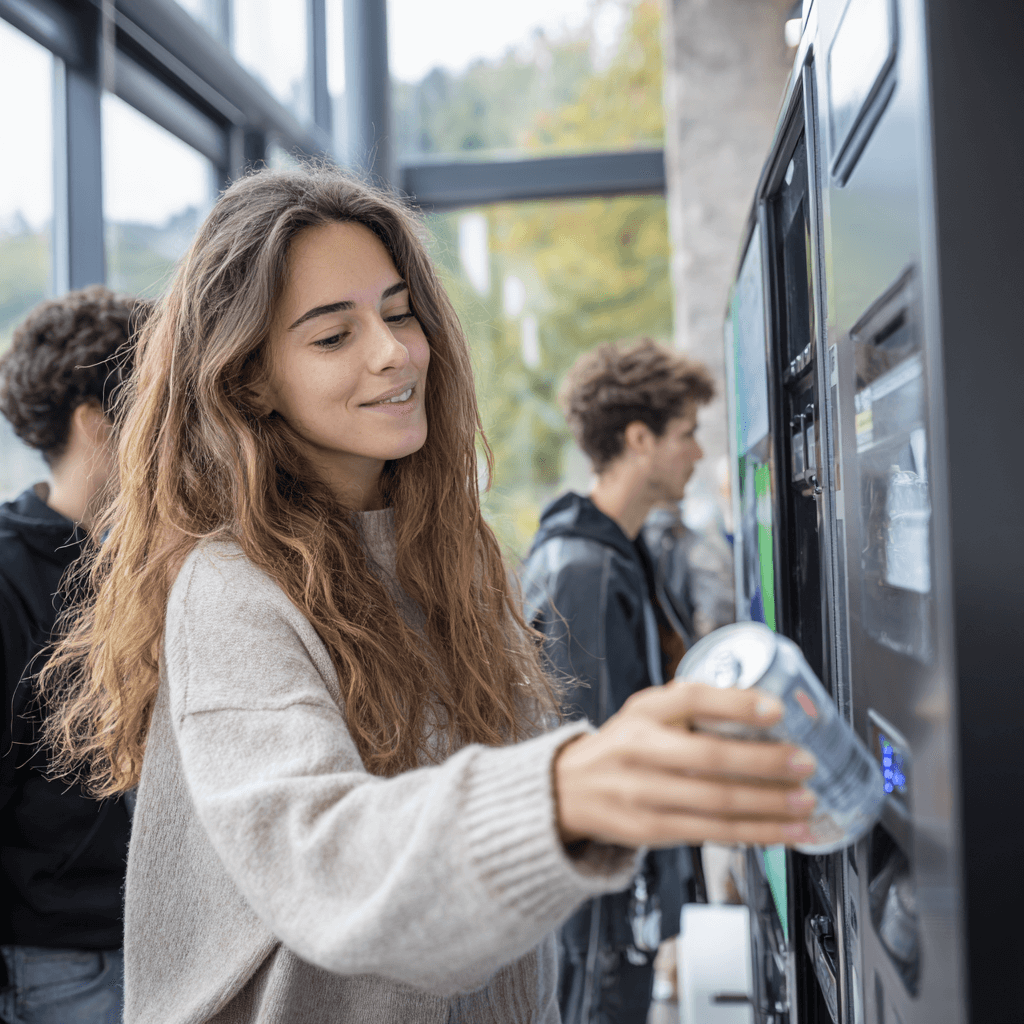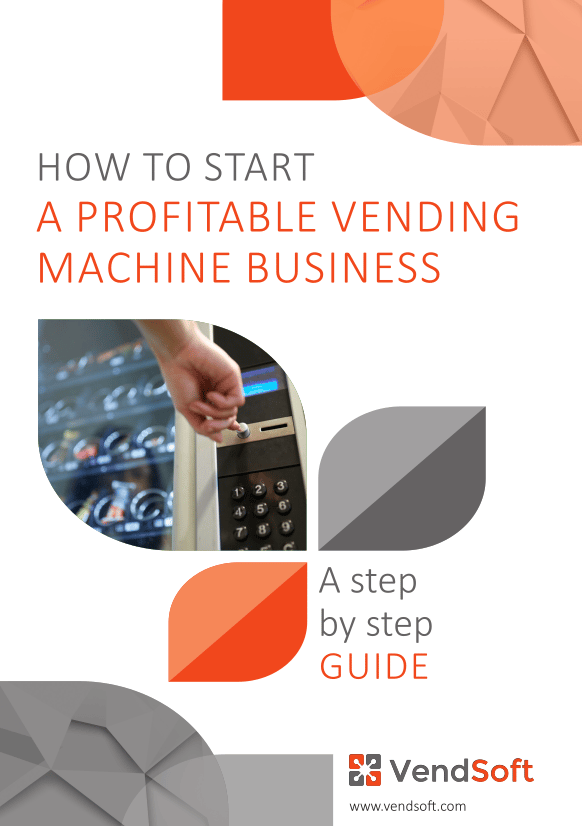Between lectures at New College Lanarkshire, a student feeds an empty soda can into a sleek machine—and a 20p credit appears, spendable in the campus canteen. It’s part of a live Scottish pilot program running across the Motherwell, Coatbridge, and Cumbernauld campuses to see how small rewards change recycling behavior and to test the effectiveness of deposit return systems in Scotland.

The pilot is a partnership between Keep Scotland Beautiful, Coca-Cola Europacific Partners (CCEP), and New College Lanarkshire; during September, students return aluminium cans and plastic bottles to on-campus RVMs and earn 20p per item, redeemable in the canteens.For this campus trial, eligible items are aluminium cans and plastic bottles only. Students return aluminium cans and plastic bottles at the RVMs and receive a 20p voucher per item, redeemable in the college canteens.The trial is part of broader programs aimed at increasing recycling rates and understanding what actually nudges people to return containers.
That 20p figure isn’t random. It mirrors the deposit set in Scotland’s upcoming Deposit Return Scheme (DRS), so today’s campus behavior maps closely to what consumers will experience nationwide. The scheme is designed to increase recycling rates by providing financial incentives, such as a small surcharge added at purchase and refunded upon return. Confirmed delivery partners for this pilot are Keep Scotland Beautiful, Coca-Cola Europacific Partners, and New College Lanarkshire.
Zooming out, DRS is scheduled to go live on 1 October 2027, aligning Scotland with a UK-wide rollout. The machines are installed at multiple sites across the campuses, supporting the supply and provision of recycling infrastructure. The process and operation of the reverse vending machines involve identifying eligible items, accepting returning containers, and managing the exchange of containers for credits. A reverse vending machine is an advanced recycling device that scans and identifies returned containers using barcode or 360-degree scanning technology, ensuring only eligible items are processed for recycling or responsible disposal. Financial incentives and money are key motivators for students to participate, as the machines facilitate the exchange of containers for credits. The machines identify eligible items using scanning technology and manage the process of returning containers efficiently. A small surcharge is added at purchase and refunded upon return, encouraging recycling and responsible behavior.
Why it matters for operators: RVMs create a repeatable micro-habit (buy, enjoy, return, reward), drive footfall where credits are redeemed, and generate cleaner, more traceable material streams. For vending businesses, that’s a sustainability story your customers can literally hold in their hands—and a glimpse of how tomorrow’s machines will do more than vend; they’ll close the loop. The positive impact on the environment is clear, and stakeholders are committed to comply with government policies and be in line with sustainability goals. Deposit return schemes and reverse vending are seen as a solution to plastic waste and low recycling rates, offering practical ways to improve recycling and support the circular economy. The scheme was introduced and intended to motivate responsible behavior, aligning with the introduction of the Deposit Return Scheme. Collected containers enter established recycling streams to support the circular economy. Increased recycling reduces pollution and saves energy and raw materials, further benefiting the environment.
The UK government and Scottish government both play a significant role in introducing and supporting these schemes, setting the regulatory framework and targets for recycling. While Coca-Cola’s mixed record on environmental issues is acknowledged, this initiative highlights both the challenges and positive steps taken toward sustainability.
Finally, hearing directly from students and observing how people interact with the machines provides valuable insights for future programs, helping to refine recycling initiatives and increase engagement.
Introduction to the Deposit Return Scheme
The rollout of reverse vending machines at New College Lanarkshire marks a pivotal moment in Scotland’s journey toward a more sustainable future. Spearheaded by Coca-Cola Europacific Partners in collaboration with Keep Scotland Beautiful, this innovative pilot program is designed to encourage students to recycle more beverage containers—whether plastic bottles, aluminum cans, or glass bottles—by offering a straightforward financial incentive: 20p for every eligible container returned.
By integrating reverse vending machines into everyday life on campus, the scheme gives students hands-on experience with the deposit return scheme, making recycling both accessible and rewarding. This practical approach not only helps reduce branded plastic waste but also fosters responsible consumption habits among young people. As students interact with the machines, they become active participants in a system that’s proven to work—Resource Recycling Magazine notes that the highest recycling rates in the US are found in states with established deposit return schemes. In contrast, regions with the lowest recycling rates often lack such financial incentives or deposit return schemes, highlighting the importance of these programs in driving recycling performance.
The Scottish Government’s backing of deposit return schemes and the introduction of reverse vending machines underscores a strong commitment to improving recycling rates and minimizing waste. By making it easy and rewarding to recycle, the program aims to divert more containers from landfill and set a new standard for sustainability on campus.
Jo Padwick, representing Coca-Cola Europacific Partners Great Britain, highlights the importance of giving students real-world experience with deposit return schemes to encourage lasting, sustainable behaviors. The success of this pilot will be measured not just by the number of containers recycled, but by its ability to inspire a new generation to embrace circular economy principles. If successful, this model could be replicated across other institutions and regions, helping to boost recycling rates and reduce environmental impact far beyond the college gates.
Implementation and Partners
The success of the “cash-for-cans” campus trial at New College Lanarkshire is rooted in a strong network of partners, each bringing unique expertise to the table. At the heart of the initiative is a collaboration between Coca-Cola Europacific Partners, Keep Scotland Beautiful, and New College Lanarkshire.This partnership model ensures that every aspect of the deposit return scheme—from machine supply to day-to-day operation—runs smoothly and effectively.
Excel Vending, a key player in the vending industry, was responsible for the installation and ongoing maintenance of the reverse vending machines across the Motherwell, Coatbridge, and Cumbernauld campuses. Their experience in deploying and servicing vending machines meant that students could rely on a seamless, user-friendly experience when returning their beverage containers. Ball Packaging contributed their expertise in sustainable packaging solutions, helping to ensure that the collected cans and bottles could be efficiently recycled into new containers, supporting the circular economy.
The Scottish Government’s commitment to rolling out deposit return schemes provided the regulatory framework and funding necessary to launch the pilot. By working closely with public and private sector partners, the government helped align the trial with national sustainability goals and set the stage for a future UK-wide deposit return scheme.
Keep Scotland Beautiful played a crucial role in engaging students and staff, running awareness campaigns and gathering feedback to refine the program. Their involvement ensured that the scheme was not just about recycling rates, but also about fostering a culture of environmental responsibility on campus.
New College Lanarkshire’s leadership and facilities teams were instrumental in integrating the reverse vending machines into everyday campus life. By strategically placing machines in high-traffic areas and making the process of returning containers quick and rewarding, they maximized student participation and made recycling a visible, accessible part of the college experience.
Together, these partners created a practical, scalable model for deposit return schemes in Scotland. Their combined efforts demonstrate how collaboration between industry, education, and government can deliver real-world solutions to the challenge of branded plastic waste and low recycling rates—turning a simple 20p incentive into a powerful habit for sustainability.
Want more vending business tips?
Subscribe to our free 2-week email course and learn how to start a successful vending business.

